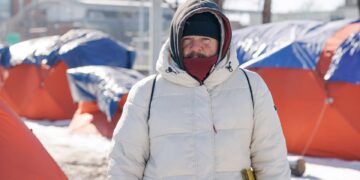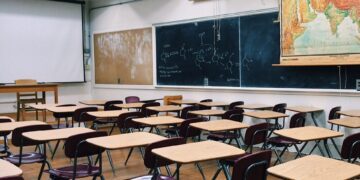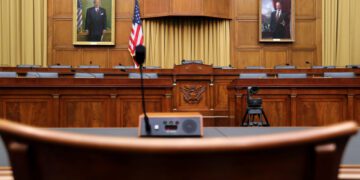By Joseph Sunde -
The COVID-19 pandemic has claimed many victims, from the millions who have contracted the virus directly to many others who continue to endure its social and economic disruptions.
The suffering has been particularly acute for the children who continue to be confined at home, whether struggling to adapt to remote-learning regimens or remaining mysteriously absent altogether. For low-income and minority families, in particular, the road is even more difficult. As Jonathan Chait recently put it, “The social damage will not be spread evenly.”
Meanwhile, somewhat paradoxically, the public-health case for school reopening seems only to grow stronger. According to economist Emily Oster of Brown University, “Schools do not, in fact, appear to be major spreaders of COVID-19.” Observing a range of evidence from multiple states, Oster summarizes her findings as follows:
Our data on almost 200,000 kids in 47 states from the last two weeks of September revealed an infection rate of 0.13 percent among students and 0.24 percent among staff. That’s about 1.3 infections over two weeks in a school of 1,000 kids, or 2.2 infections over two weeks in a group of 1,000 staff. Even in high-risk areas of the country, the student rates were well under half a percent. …
School-based data from other sources show similarly low rates. Texas reported 1,490 cases among students for the week ending on September 27, with 1,080,317 students estimated at school – a rate of about 0.14 percent. The staff rate was lower, about 0.10 percent.
This shouldn’t surprise us, of course. As early as last July, we saw similar results, both from daycare facilities within the United States and reopened schools across Europe. At the time, the American Academy of Pediatrics concludedthat “all policy considerations for the coming school year should start with a goal of having students physically present in school.” The group reminded policymakers that “COVID-19 policies are intended to mitigate, not eliminate, risk” and that “no single action or set of actions will completely eliminate the risk of SARS-CoV-2 transmission.”
Unfortunately, this evidence was largely ignored, and institutional resistance to such data has continued to this day. Schools cite a range of competing factors, of course, from facility and budget restrictions to feedback from concerned parents. Each plays a legitimate and distinctive role in decision-making and ought to depend heavily on local realities. But when we step back and observe the bigger picture, we see that forces of politics and partisanship are also largely at play.
In an eye-opening article for the New Yorker and ProPublica, Alec MacGillis highlights these factors within Baltimore schools, noting that many students are being left behind due to the incentive structures of a particular set of external interests. Teachers unions have always been opposed to reopening. But according to MacGillis, the Trump administration’s direct overtures to reopen schools provided convenient political cover for them to create a cultural consensus that dismissed the actual evidence – particularly in states and cities that leaned leftward.
“Our teachers were ready to go back as long as it was safe,” says Randi Weingarten, president of the American Federation of Teachers. “Then Trump and [Betsy] DeVos played their political bulls–t.”
And then, with little sense of irony or self-awareness, the teachers unions quickly proceeded to play their own. “It almost feels like folly now to speak about data,” says Johns Hopkins University epidemiologist Jennifer Nuzzo, reflecting on the political dynamics over the summer. “The decision was going to be made not on data but on politics.”
New research now affirms that narrative, showing that public health was not ultimately at the forefront of public concern. According to a study by Jon Valant of the Brookings Institution, “there is no relationship … between school districts’ reopening decisions and their county’s new COVID-19 cases per capita,” and yet “there is a strong relationship … between districts’ reopening decisions and the county-level support for Trump in the 2016 election.” In another study, political scientists Michael Hartney and Leslie Finger observed a wide set of national data, concluding that “politics, far more than science, shaped school district decision-making,” and that “mass partisanship and teacher union strength best explain how school boards approached reopening.”
At some level, the political game-playing was just an excuse – a convenient distraction to hide a more systemic variety of resistance. As Chait observes, “the union’s incentives are misaligned with those of their students.” Indeed, even where competing concerns are legitimate and understandable, the weight of all this feels different for a teacher than a student:
For kids and families, in-person education presents a trade-off between the health risks of going to school, and the economic and social costs of staying home. For younger low-income students, the costs of losing in-person school are catastrophic and permanent.
Teachers, on the other hand, are incentivized almost entirely to minimize health risks. They get paid the same salary if they go to school or teach from home. They might feel unhappy about watching their students flail, but they do not have anything like the investment that the families have.
In the end, however, it is the teachers, not the students, who have the bulk of power and public representation. Amid all of the illogical squabbling and self-focused risk calculations among adults, the actual science can be quickly ignored while children are left to suffer in silence.
“The voices we don’t hear are the ones who are shut up at home,” says Harvard education professor Meira Levinson, reflecting on surveys from parents and teachers who opposed reopening. “We have no mechanism to hear from them. There are no polls of 6-year-olds.”
The subsequent pain will be felt by all children in some shape or form. According to nationwide studies, last spring’s students may have gained just 70% of a normal year’s comprehension in reading and just 50% in math. In the Boston public schools, only half of students showed up for classes each day, with one in five failing to ever log in. Again, such damage is particularly pronounced among low-income and minority populations.
“One survey found four-fifths of Hispanic students, three-quarters of [b]lack students, but only half of white students lack access to in-person learning,” writes Chait. “Affluent parents have the means to cushion the blow to their children: by working from home, having one parent quit work, forming learning pods, hiring tutors, or enrolling in private schools, which are reopening for in-person learning much faster.” According to Robin Lake at the Center for Reinventing Public Education, last spring’s “elementary students [in urban districts] may have lost 30% of their reading skills.”
Noting all of these same trends, New York Times columnist Ross Douthat has aptly described the situation as “sabotage in the liberal city,” wherein a convergence of narrow partisan interests and entrenched power centers fight in the ephemera of identity wars, all while neglecting the real damage being done to real people who lack the privilege and position to play such games:
The pandemic-era policies of many progressive jurisdictions are sabotaging basic civic goods, with anti-Trump zeal as an accelerant and with effects on minority communities that are likely to far outlast the Trump era. This means that for many African-Americans and Hispanics, a key legacy of 2020 may be a well-intentioned liberal betrayal of their interests, a hollowing-out of the institutions that protect and serve them, and the deepening of America’s racial inequalities even if Trumpism goes down to defeat.
This isn’t to say that there are not legitimate pressures and competing concerns across all people groups and ideological tribes. But given the increasing clarity of the data and the various concerted efforts to either ignore or subvert it, it seems evident that a particular set of interests is working to maintain control and manufacture public consensus at the expense of the most voiceless and underprivileged among us.
If there is a “forgotten man” of the COVID-19 era, the unseen and under-schooled student is surely a top candidate.







